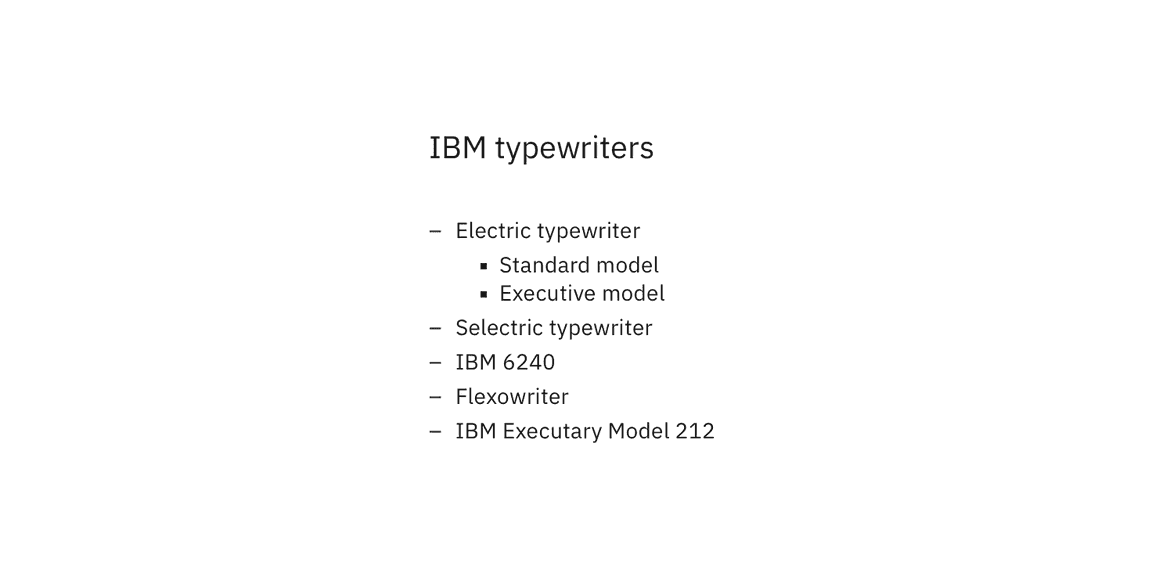List
Lists are vertical groupings of related content. List items begin with either a number or a bullet.
Overview
Lists consist of related content grouped together and organized vertically. Use bulleted lists when you don’t need to convey a specific order for list items. Use numbered lists when you need to convey a priority, hierarchy, or sequence between list items.
Live demo
This live demo contains only a preview of functionality and styles available for this component. View the full demo on Storybook for additional information such as its version, controls, and API documentation.
Variants
| Variant | Purpose |
|---|---|
| Unordered lists | To present content of equal status or value. |
| Ordered lists | Imply sequence and order, and are commonly used when giving a set of instructions. |
Content
Length
Generally, lists should be used to present simple pieces of information. For more complex sets of data, consider using a data table.
Order
Arrange list items in a logical way. For example, if the list is about resource use, the default order might be highest resource use to lowest. Grouping items in categories into smaller, more specific lists might be more meaningful in some contexts. Alternatively, organize in alphabetical or numeric order.
Text
Use list items that are grammatically parallel. For example, do not mix passive voice with active voice or declarative sentences (statements) with imperative sentences (direct command).

Feedback
Help us improve this component by providing feedback, asking questions, and leaving any other comments on GitHub.